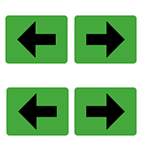In this episode of the 360 interviews we have decided to focus on the photographic side of the industry, and we’re delighted to have caught up with David Grover for this article.
Tell us a little about your journey and how you ended up in your role at Capture one.
I picked up a camera when I was 15 and the rest is history…. . That is indeed true, which kicked off an interest in photography from that point. One of my first jobs was working in a Camera store where I picked up the Gear Addiction Syndrome which has affected the bank balance ever since. I managed to just about scrape into art school at the then known KIAD (Kent institute of art and design) where I formally studied photography. After that I was one of the fortunate few who managed to get employed within the industry, starting with film development and printing. I bounced around a few studios and some very early digital ones with dubious and expensive technology. A brief relocation to Australian started a chain of events associating me with companies in Denmark which is where Capture One is based today.
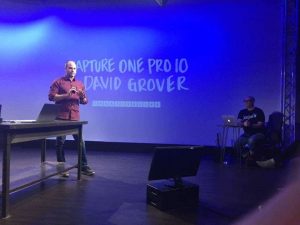
How have you seen the industry change over the past 10 years in relation to camera tech and software development for photographers?
So trying to remember what 2010 was like! That’s the era of the Canon 5D MkII which in some way revolutionised accessible DSLR technology that wasn’t full of compromises. The decade before we got excited about 6 Megapixels and the ability to that image on an LCD screen. Camera tech since than has eclipsed anything I guess we thought possible. 60+ megapixels in a compact body with 5 axis stabilisation is pretty impressive. The mega pixel race is now somewhat over, and manufacturers will have to find other specs to tempt hungry gear addicted people. In terms of software development, Photoshop has been toppled somewhat as an essential part of a photographers toolkit. In it’s place comes more cross over applications like Capture One, On1, Luminar, Lightroom and so forth. “The Cloud” is a term that came to light in this period too.
Are photographers still looking for more and more pixels in the camera sensors, or have you seen a plateau with photographers who are settling for mirrorless cameras and micro 4/3rds sensors?
See above! There are some who will always want (maybe not need) more. But we are definitely seeing a plateau. What additional benefit does anything above 60MP give you? More than that we start to then hit the limit of what lenses can resolve on a given format, so there has to be a sensible limit somewhere. However, there are some industries where even 300MP would make sense. Want to record the earth from high above? Want to preserve an ancient artwork and be able to reproduce it faithfully? But for more and more of us, there are benefits to the mirrorless system as the sensor does more than “just” record the image. It’s another sensor for detecting focus, eyes, animal eyes, and probably many more computational things we haven’t thought of.
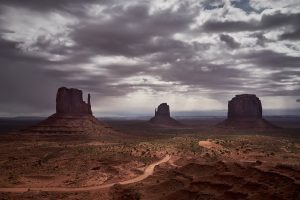
Image: ©David Grover
Do you think photographers have become more disciplined in their cataloguing methods, as it seems capture one and Lightroom have become essential tools in the photographers workflow?
I would say a small percentage have. And the majority are not making use of organisational tools at their disposal. I imagine, by the time we get around to organising our collections, applications will be smart enough to organise for you. It’s practically there anyway.
Are you finding that photographers are becoming better digital technicians as the image editing and cataloguing capabilities are enhanced with each iteration?
For the most part yet. I would say the biggest fault is not adopting a curious approach to editing. You can’t “break” a photo so get stuck in and see what happens. There is still so much to learn though and so many different ways to achieve the same end result. But it’s by far more flexible, more powerful and far less smelly than a darkroom.
How important is key-wording in the big scheme of image archiving.
Key-wording? It’s massively important! Does anyone do it? Only the sacred few…. My hope (as I am terrible myself) is that applications will become so advanced that manual key-wording is something consigned to the history books. In an ideal world we should all keyword our images, but in reality we don’t possess the time or the inclination to indulge in a (seemingly) thankless task.
Capture one now has some very powerful editing capabilities, do you think photographers are doing more on the raw format before processing than previously.
I think it depends on the editor and genre. We have definitely seen more of a shift from needing Photoshop now that editing tools are better / easier / more advanced and also some simple retouching tools being available. That takes care of a large proportion of photography / photographers. Whether there is “more” editing is a tough one. Cameras have improved in terms of colour accuracy, reducing noise. Capture One has improved in terms of it’s out of the box rendition so there is less of a correcting aspect needed and now with more freedom to create.
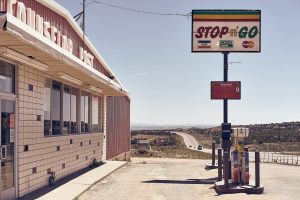
Image: ©David Grover
It’s been a crazy year, how have you seen photographers react to being denied the opportunity to work – are they learning more, catching up on back catalogues etc?
Absolutely! For the most part I have certainly seen a desire to learn more, clean up, do some key-wording and also be creative on what business opportunities they could find. Making print shops, trying other artistic endeavours, live streaming, podcasting and so on. Let’s hope it gets back to normality though.
How do you see the industry and photographers in the coming years – has the role as a photographer changed.
Hmm tough one. So hard to predict. Definitely more e-commerce needs this year! Almost every year I can remember somebody predicting the death of traditional photography, and it hasn’t happened yet, and I don’t think it will. One prophecy a time go was that everyone would shoot video and just grab the best frame… which of course didn’t happen.
I think today photographers need to be more flexible than they have ever been. I don’t think that means having to shoot every kind of subject under the sun, but to react quickly to an ever changing landscape, and be willing to dismiss business models of old.
You take a pretty decent photo yourself – do you enjoy it, or is it more a technical journey for you?
Why thank you! I don’t have patience to sit on a rock for 3 hours waiting for the perfect light, or get up at 4am for a sunrise. So I am definitely more of an opportunistic photographer. I am also glad I don’t have to perform on demand as my consistency is erratic. Maybe I need to buy another camera.
Will we ever be satisfied by the pixel numbers in a sensor – or will it just get more and more and more detailed?
We will have to be as nobody will be prepared to pay for or carry the lenses required for ever increasing pixel density. I am sure sensitivity will improve, readout will be faster, long exposures longer and so on. But no more megapixels!
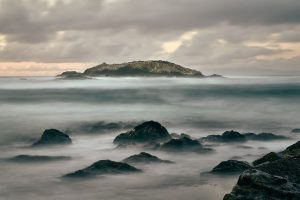
Image: ©David Grover
If you look into the David grover crystal ball, how do you see the future of our industry?
It’s all gonna be 3D rendered and made by Google AI. Just joking! As I said earlier every year someone has predicted the death of a, b ,c… we still shoot black and white, some crazy people shoot film and so on. I am confident we won’t be overtaken by machines producing creativity. I am a strong believer in that!
What could be the next step is computational photography. If the likes of Sony, Canon, Nikon etc were given true freedom to create a camera without risk, what could they do? Even an Apple iPhone 11 Pro shoots pretty impressive images with a multi lens array. What if that was developed further? What would a Sony look like with 6 lenses and 6 sensors working together? Can it ever match or better the results from a G Master lens?
A true pocket camera delivering results that we can only get with a DSLR / Mirrorless currently. Time will tell.
About David Grover
David is the support and business manager for Capture One software, and it’s widely acknowledged that what he doesn’t know about capture one, isn’t worth knowing. Our founder Carl Lyttle has known David for many years, and says his ability to explain a process photographically, both in a physical camera and in a software terms is second to none.
[maxbutton id=”1″ ]










